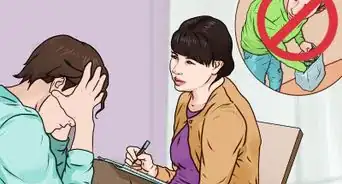This article was co-authored by Rebecca Ward, LMFT, SEP, PCC, MA. Rebecca A. Ward, LMFT, SEP, PCC is the Founder of the Iris Institute, a San Francisco, California-based business focusing on using somatic expertise to teach individuals and groups the skills to deal with dilemmas using interventions, including her own Original Blueprint® method. Ms. Ward specializes in treating stress, anxiety, depression, and trauma. She is a Licensed Marriage and Family Therapist (LMFT), a Somatic Experiencing® Practitioner (SEP), and a Professional Certified Coach (PCC) accredited by the International Coach Federation (ICF). Rebecca holds an MA in Clinical Mental Health Counseling from Marymount University and an MA in Organizational Leadership from The George Washington University.
There are 9 references cited in this article, which can be found at the bottom of the page.
This article has been viewed 25,652 times.
Unresolved trauma can occur from blocked out trauma from childhood or an emotional event that you do not want to deal with in adulthood. However, blocking out trauma does not mean that you escape the effects of trauma on your life. No matter how much you deny or dissociate from the trauma, it does not mean that the trauma did not happen.[1] If you believe you may have unresolved trauma, talk to a therapist to help you overcome the experience.[2]
Steps
Observing Problem Behaviors
-
1Notice addiction. Some people turn to drugs, alcohol, sex, food, shopping, or gambling to push negative feelings away or to numb painful feelings. Realize that drugs are not the only addictive substance, although they are the most popular. Addiction is often an attempt to deal with unresolved trauma or to push it down. If you find yourself using addiction as a way to escape negative feelings, there may be some unresolved trauma to look at.[3]
- Some signs of addiction include feeling the need to engage in the addiction daily, having intense urges, spending money on the addiction even when you don’t have it, engaging in risky behavior, and failing in your attempts to stop your addiction.[4]
- Addiction is harmful to your body, relationships, and emotions. If you have a problem with addiction, check out How to Overcome an Addiction for more information.
- Addiction can also co-occur with other psychiatric disorders such as depression and bipolar disorder.
-
2Look out for an eating disorder. Some people turn to an eating disorder as a way to try to escape painful feelings.[5] Risk factors for developing an eating disorder include body dissatisfaction, low self-esteem, poor coping skills, and social problems.[6] By controlling your foods and becoming strict on diet, you may try to escape feelings of sadness or trauma. Regardless of how you escape, disordered eating is harmful to you and therapeutic treatment is strongly advised.
- For more information about treating an eating disorder, check out How to Treat an Eating Disorder.
Advertisement -
3Examine self-harming behaviors. Self-harming often represents an attempt to mask emotional pains that are difficult to express. Some people attempt to get relief from emotional pain through physical pain, or self-harm to distract from life.[7] Self-harming can be a part of unresolved trauma.[8]
- Self-harming can include scratching, burning, or cutting your skin. You may bang your head, stick objects into your skin, swallow poisonous substances, or prevent wounds from healing. Self-harming is serious and can be life-threatening. If you’re struggling with self-harm, check out How to Recover from Self Injury.
- Self injury is a sign of Borderline Personality Disorder, so it is important to share this behavior with your therapist or health care provider so they can use this information for diagnostic purposes.
-
4Pick up on sleep problems. Some people with unresolved trauma have problems going to sleep or staying asleep.[9] While sleeping problems do not indicate trauma, they can occur when dealing with trauma or unresolved trauma.
- If you’re having consistent problems sleeping, ask yourself whether they may be related to unresolved trauma.
- It is important to practice good sleep hygiene and get between seven to nine hours of sleep a night. If you are not meeting this goal, then discuss this with your health care provider.
Examining Emotional Signs
-
1Notice feelings of anxiety. You may begin to experience anxiety or panic attacks in typically normal situations.[10] The anxiety and panic attacks may come out of nowhere, and suddenly you may feel scared or fearful. Even after the anxiety fades, you may feel unsure why you experienced those symptoms or what brought them on.
-
2Observe signs of shame. If you struggle with unresolved trauma, you may have a deep feeling that you are worthless, bad, or unimportant.[11] You may have low self-worth or internalize negative feelings of yourself. Feeling shame about yourself can indicate a level of unresolved trauma.
- If you think, “I am bad” or “I am unworthy of love,” think about how these beliefs came to be and why you believe them.
-
3Examine symptoms of depression. Unresolved trauma may lead to chronic depression.[12] If you are depressed, you may feel hopeless, angry or irritable. You might experience self-loathing, a lack of energy, difficulty concentrating, or changes in your eating or sleeping habits.[13]
- You may feel down, sad, or helpless for no apparent reason. You may also feel chronically depressed with no break for at least two weeks.
- The most common symptoms of depression include the following mnemonic SIG E. CAPS: S= Sleep Problems; I= Lack of interest in normal activities; G= Feelings of Guilt; E= Lack of Energy/Fatigue; C= Problems with Concentration; A= Changes in your appetite; P= Psychomotor agitation; and S= Suicidal Ideation.
-
4Note difficulty with feelings and conflicts. You may move through difficult feelings rapidly, such as rage, sadness, or upset. Or, you may avoid feelings altogether, whether good or bad. You may respond to situations by feeling withdrawn or numb. Unresolved trauma may leave you feeling detached and unable to cope with intense feelings or situations that may cause intense feelings.
- You may begin to feel sadness or anger, then move quickly past it or push it down and ignore it.
-
5Look for difficulty with relationships. As a result of unresolved trauma, your relationships may begin to suffer. You may avoid close friendships or relationships due to a fear of being hurt or rejected, be unfriendly or even hostile to others, have intense but brief romantic relationships, avoid getting “too close” to others, or perhaps even avoid relationships altogether.
- On the contrary, you may also seek out relationships with abusive people, take on a victim role, and re-confirm to yourself that you are unworthy of love.
- Relationship difficulties may indicate a need to protect yourself from being hurt.
Looking at Thoughts
-
1Observe a tendency for black-and-white thinking. Your thinking may become more concrete and child-like. You may cling to incorrect thoughts or beliefs despite evidence that contradicts those beliefs. You may even revert back to thinking patterns you had as a child or create life rules based on your childhood experiences.
- This type of all-or-nothing/black-and-white thinking can create rigidness in your thoughts and behaviors. For example, if your unresolved trauma involved a male, you may begin to distrust all men or avoid interactions with men thinking that they are “bad.”
-
2Take care of dissociative symptoms. Dissociation means that you feel away from yourself, almost as if you’re looking in and not actually in your body. You may space out, lose track of time, and feel totally detached from yourself.[14] Dissociation is a means to cope with unresolved trauma, especially childhood trauma. It can help to separate you from the trauma or memories of the trauma, yet does not help to resolve the associated feelings.[15]
- Check out How to Overcome Depersonalization for more information.
-
3Note suicidal thoughts. Having unresolved trauma may lead you to feelings or thoughts of suicide. You may feel chronically suicidal.[16] Some warning signs of suicide include feeling hopeless or having no purpose, talking about feeling trapped or experiencing unbearable pain, socially withdrawing, feeling like your life is a burden to others, looking for or thinking about a means of suicide, and increased alcohol or drug use.[17] Take suicidal thoughts seriously. They are a good warning sign that you need help.
- If you feel suicidal, call emergency services or reach out to a suicide hotline. In the USA, call or text 988. You can also check out How to Stop Thinking About Suicide.
Expert Q&A
-
QuestionHow do you deal with a trauma from your past?
 Rebecca Ward, LMFT, SEP, PCC, MARebecca A. Ward, LMFT, SEP, PCC is the Founder of the Iris Institute, a San Francisco, California-based business focusing on using somatic expertise to teach individuals and groups the skills to deal with dilemmas using interventions, including her own Original Blueprint® method. Ms. Ward specializes in treating stress, anxiety, depression, and trauma. She is a Licensed Marriage and Family Therapist (LMFT), a Somatic Experiencing® Practitioner (SEP), and a Professional Certified Coach (PCC) accredited by the International Coach Federation (ICF). Rebecca holds an MA in Clinical Mental Health Counseling from Marymount University and an MA in Organizational Leadership from The George Washington University.
Rebecca Ward, LMFT, SEP, PCC, MARebecca A. Ward, LMFT, SEP, PCC is the Founder of the Iris Institute, a San Francisco, California-based business focusing on using somatic expertise to teach individuals and groups the skills to deal with dilemmas using interventions, including her own Original Blueprint® method. Ms. Ward specializes in treating stress, anxiety, depression, and trauma. She is a Licensed Marriage and Family Therapist (LMFT), a Somatic Experiencing® Practitioner (SEP), and a Professional Certified Coach (PCC) accredited by the International Coach Federation (ICF). Rebecca holds an MA in Clinical Mental Health Counseling from Marymount University and an MA in Organizational Leadership from The George Washington University.
Licensed Therapist The best way is to go to therapy. Find a therapist with a specialization in some working with trauma survivors. If it's causing you anxiety today, seek out somebody who's had some kind of training in a somatic-oriented modality: somatic experiencing practitioners, hakomi sensory motor psychotherapy, or some form of talk therapy with an element of mindfulness.
The best way is to go to therapy. Find a therapist with a specialization in some working with trauma survivors. If it's causing you anxiety today, seek out somebody who's had some kind of training in a somatic-oriented modality: somatic experiencing practitioners, hakomi sensory motor psychotherapy, or some form of talk therapy with an element of mindfulness.
References
- ↑ https://discussingdissociation.com/2009/07/04/20-signs-of-unresolved-trauma/
- ↑ Rebecca Ward, LMFT, SEP, PCC, MA. Licensed Therapist. Expert Interview. 29 May 2020.
- ↑ https://discussingdissociation.com/2009/07/04/20-signs-of-unresolved-trauma/
- ↑ http://www.mayoclinic.org/diseases-conditions/drug-addiction/basics/symptoms/con-20020970
- ↑ http://www.healthyplace.com/blogs/traumaptsdblog/2016/06/10/15-common-signs-of-unresolved-trauma/
- ↑ https://www.nationaleatingdisorders.org/risk-factors
- ↑ http://www.helpguide.org/articles/anxiety/cutting-and-self-harm.htm
- ↑ https://discussingdissociation.com/2009/07/04/20-signs-of-unresolved-trauma/
- ↑ http://www.healthyplace.com/blogs/traumaptsdblog/2016/06/10/15-common-signs-of-unresolved-trauma/
- ↑ http://www.healthyplace.com/blogs/traumaptsdblog/2016/06/10/15-common-signs-of-unresolved-trauma/
- ↑ http://www.healthyplace.com/blogs/traumaptsdblog/2016/06/10/15-common-signs-of-unresolved-trauma/
- ↑ https://discussingdissociation.com/2009/07/04/20-signs-of-unresolved-trauma/
- ↑ http://www.helpguide.org/articles/depression/depression-signs-and-symptoms.htm
- ↑ https://discussingdissociation.com/2009/07/04/20-signs-of-unresolved-trauma/
- ↑ http://www.healthyplace.com/abuse/dissociative-identity-disorder/definition-of-dissociation-symptoms-causes-treatments/
- ↑ https://discussingdissociation.com/2009/07/04/20-signs-of-unresolved-trauma/
- ↑ http://www.save.org/about-suicide/warning-signs-risk-factors-protective-factors/
- ↑ Rebecca Ward, LMFT, SEP, PCC, MA. Licensed Therapist. Expert Interview. 29 May 2020.

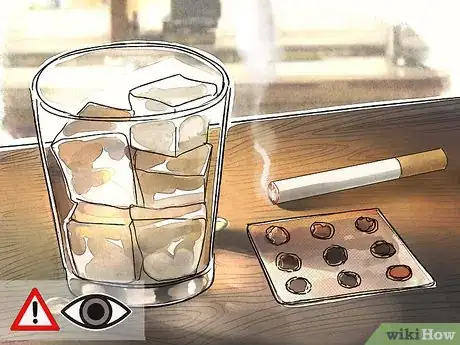
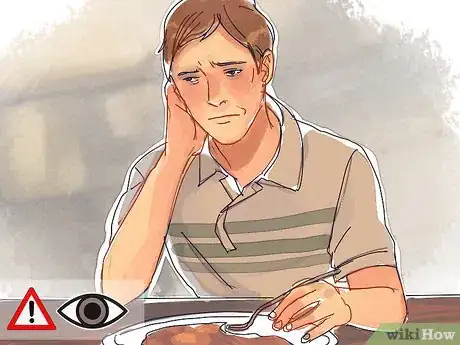
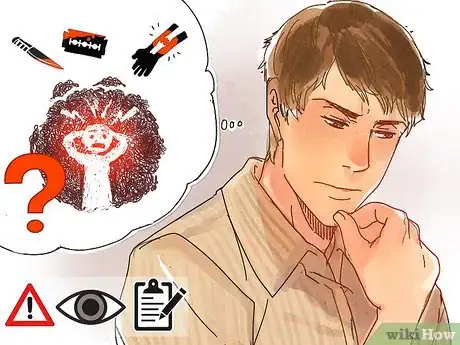

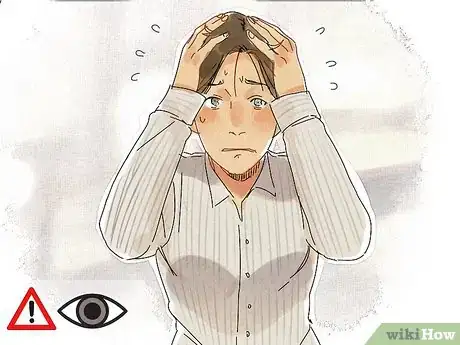
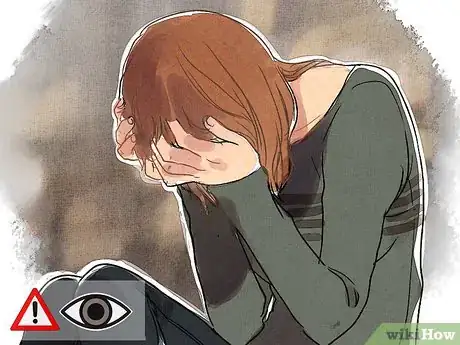
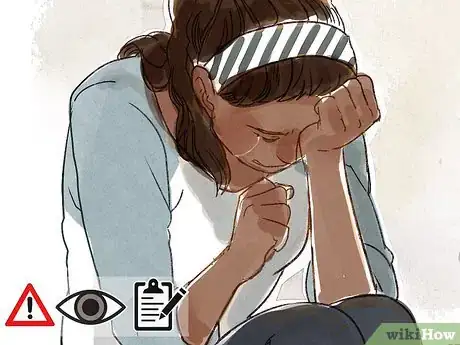
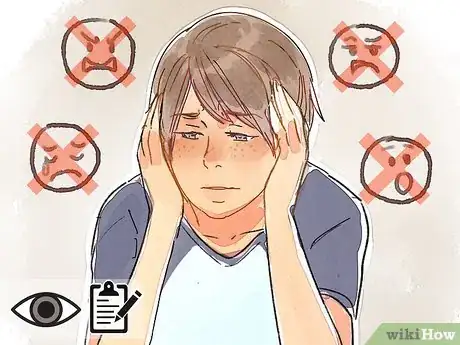
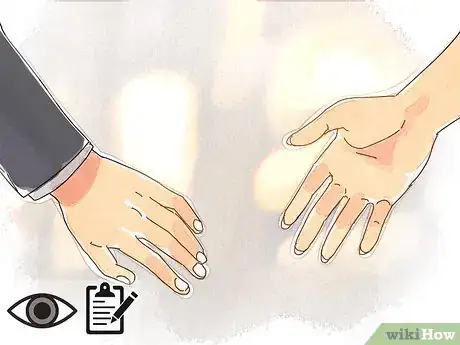

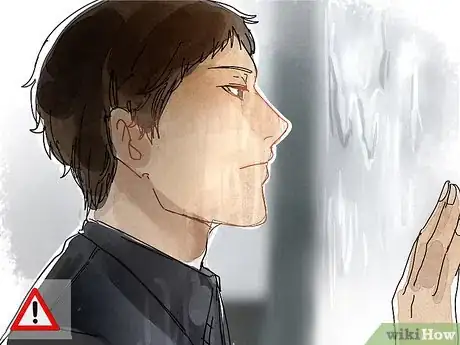
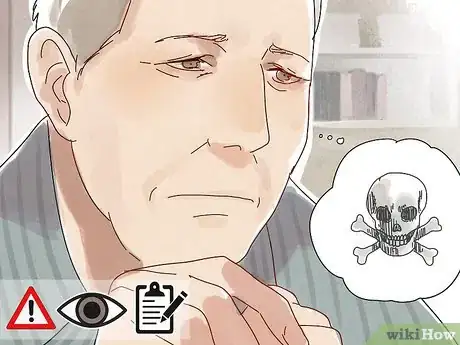
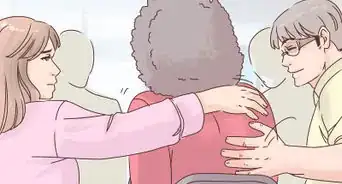






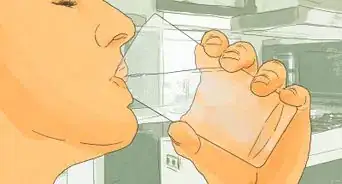




-Step-17-Version-2.webp)
